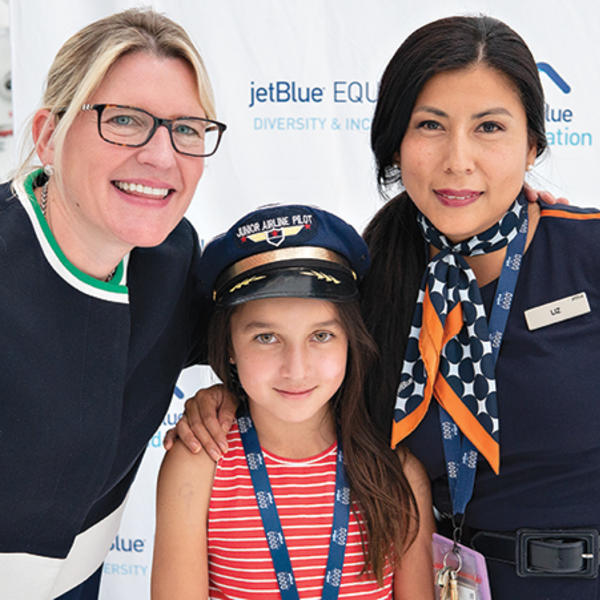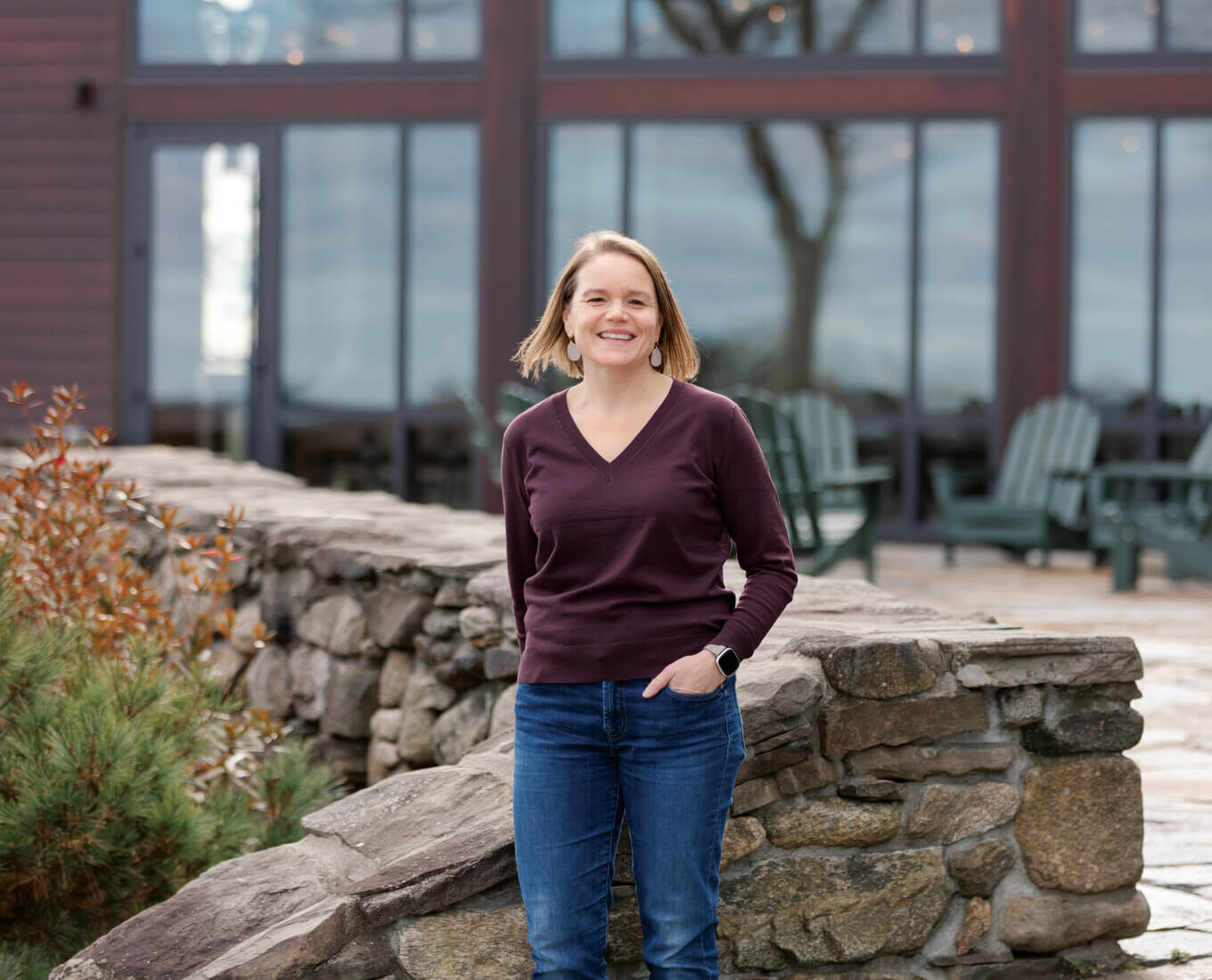Object Lessons
Geraghty characterizes her experience at Holy Cross as wonderful, a place where she made lifelong friends and met professors who challenged her. She was a sociology major, a discipline she found appealing for the insights it offered into people's behavior. "I liked thinking about what motivates people, what about their backgrounds makes them who they are," she says.
As is so often the case, many formative lessons came of experiences outside the scope of her chosen academic discipline. Tenacity was the byproduct of a math class Geraghty struggled with, which prompted her to visit her math professor's office daily to receive extra help. Service leadership, a management philosophy that guides her in her current role, maps to Holy Cross' Jesuit charism. And independence was forged abroad: Geraghty spent a year at the University of Sussex in Brighton, England; the experience had a profound effect. "It created a level of independence in me," she recalls. "I knew then that I wanted to do something in the international space. I wanted to develop a larger worldview."
After graduating, Geraghty enrolled at Syracuse University, where she earned a J.D. and an M.S. in international relations from the university's Maxwell School of Citizenship and Public Affairs. By 2005, she was a partner at the New York firm of Holland and Knight, and that same year, she received an offer from JetBlue to join its legal department as director of litigation and regulatory affairs. Five years later, she was named executive vice president and chief people officer and then, in 2014, executive vice president of customer experience. In 2018, she became the airline's president and COO, and only the second woman in aviation history to run a major U.S. airline.
"A Brand and Culture That Boxes Above Our Weight"
JetBlue has a small domestic market share, 5%, but scores big in customer satisfaction. J.D. Power's 2020 customer satisfaction survey ranked it second only to Southwest Airlines for long- and short-haul flights among North American airlines. For the past two years, JetBlue has won Travel & Leisure's World's Best Award, judged by reader surveys. The magazine's fourth- and fifth-place finishers, Southwest and Delta, command 16.5% and 17.7% market share, respectively. "We have a brand and a culture that boxes above our weight," Geraghty told an interviewer in 2018.
To listen to her for any length of time is to discern that Geraghty's metrics of success are as much tied to crewmember well-being and culture as customer satisfaction. "In my work, the health and safety of your people becomes your top priority," she says.
For evidence, look no further than JetBlue's early, swift and comprehensive response to COVID-19. The airline provided leave to crewmembers who were first responders and paid sick leave. It worked with the Red Cross and Doctors Without Borders and other organizations to send supplies where they were most needed, provided flights to stranded students and offered teaching tools to parents-turned-homeschool teachers through its JetBlue Foundation and Soar with Reading program, which provides underserved communities with free children's books; the initiative has donated more than $3.75 million worth of books to communities in need.
JetBlue was also the first major airline to require customers to wear masks. Other safety measures adopted as part of a layered approach include temperature checks for crewmembers, customer disinfecting kits, touchless check-in, bag-tagging and boarding experiences for customers and social distancing measures. The airline is also testing UV light as an added measure against bacteria and viruses.
"In a pandemic, you just take a step back and think, 'What am I going through? What are others going through?'" Geraghty says. "COVID quickly focuses you on what really matters. We needed a process to quickly and efficiently navigate through. Our team rose to the occasion, cleaning, wearing facial coverings, offering sick pay. And we continue to learn."
"This is an incredible moment in time that will test people's fortitude," she notes. "The people who thrive are going to be the resilient ones. Recognize you can learn so much in times like these."
At a time of tremendous economic uncertainty, an airline could almost be forgiven for losing sight of its mission and values in the interest of staying solvent, but for Geraghty, aspirational thinking is most needed in trying times when people feel worried, even scared. JetBlue's motto, "Inspiring humanity," might, from a different source, seem grandiose, but Geraghty speaks with a plainspoken sincerity when she says, "I want people to see that JetBlue really cares. That it ensures customers who are ready to fly feel safe in doing so. We view this as a team sport. We know that you have to manage to the most vulnerable. We want to inspire confidence throughout this crisis. And we've made expensive financial decisions that show we care.
"Leadership to me is up close and personal. I am someone who puts values and community first," Geraghty says. "I am fortunate enough to have a job that, at its core, amplifies what The Cross taught me: Be a person for others. The world will never have enough men and women for others."


